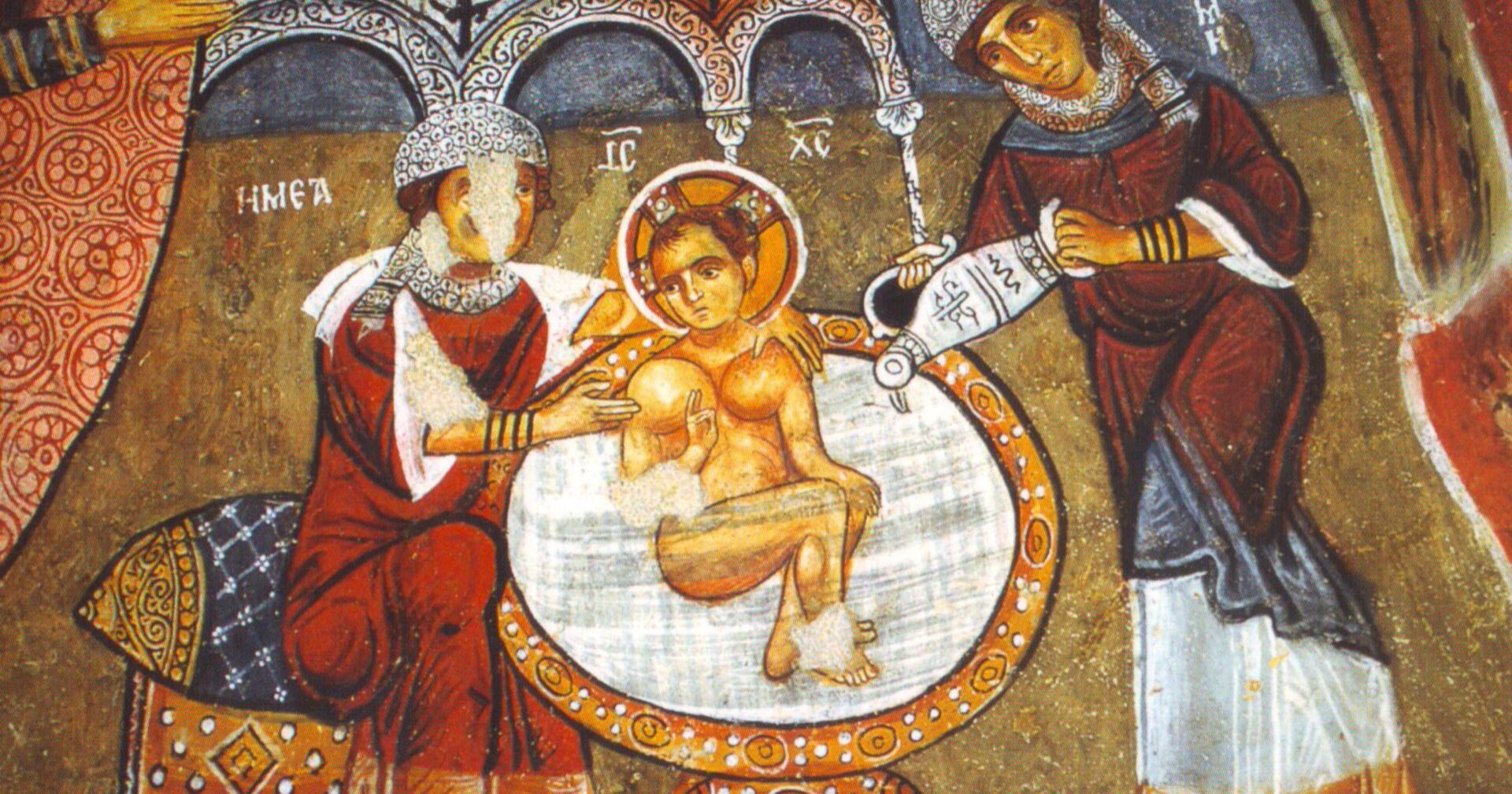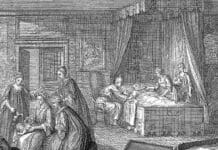Only in recent years has the once ubiquitous midwife fallen to the wayside of hospital births: midwifery is an ancient profession, considered invaluable since antiquity.
“The midwives, however, feared God; they did not do as the king of Egypt had ordered them, but let the boys live.” – Exodus 1:17
Some believe Elizabeth was Mary’s midwife, but in actuality no mention is made of any being present at the birth of Jesus in the Gospels.
It makes practical sense to consider the possibility that someone sent for a midwife for Mary, whether Joseph, the innkeeper, or the innkeepers wife – hospitality was considered the prime directive du jour. They would have had ample time to prepare as well, considering the Holy Family was in Bethlehem for a period of time being the birth of Christ.
“While they were there, the time came for her to have her child, and she gave birth to her firstborn son.” – Luke 2:6-7
The Protoevangelium of James, also known as the Infancy Gospel of James, is an apocryphal gospel that expands upon the infancy narrative of Jesus. Not Divinely Inspired, a protoevangelion or “pre-Gospel” was written to be “apologetic, doctrinal, or simply to satisfy one’s curiosity” in terms of early Christians wanting to know more about the early life of their Savior.
The Protoevangelium of James tells of two other women present at the birth of Jesus with Mary: a midwife and an assistant.
“And he found a cave there, and led her into it; and leaving his two sons beside her, he went out to seek a midwife in the district of Bethlehem.
And I saw a woman coming down from the hill-country, and she said to me: O man, whither are you going? And I said: I am seeking an Hebrew midwife. And she answered and said to me: Are you of Israel? And I said to her: Yes. And she said: And who is it that is bringing forth in the cave? And I said: A woman betrothed to me. And she said to me: Is she not your wife? And I said to her: It is Mary that was reared in the temple of the Lord, and I obtained her by lot as my wife. And yet she is not my wife, but has conceived of the Holy Spirit.
And the midwife said to him: Is this true? And Joseph said to her: Come and see. And the midwife went away with him. And they stood in the place of the cave, and behold a luminous cloud overshadowed the cave. And the midwife said: My soul has been magnified this day, because my eyes have seen strange things — because salvation has been brought forth to Israel. And immediately the cloud disappeared out of the cave, and a great light shone in the cave, so that the eyes could not bear it. And in a little that light gradually decreased, until the infant appeared, and went and took the breast from His mother Mary.” – § 18-19
While the Protoevangelium of James and the other apocrypha are not authoritative, they lend credence to the possibility Mary had a midwife given the historical reality of their prevalence.
Eastern Orthodox churches hold a strong pious tradition that a midwife and one other woman were present at the birth of Jesus, a scene commonly seen in Byzantine icons. Ethiopian Christians hold this tradition as well.
Photo credit: Public Domain via Wikimedia Commons

















